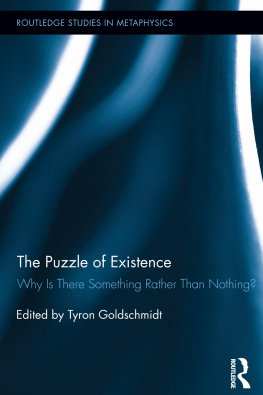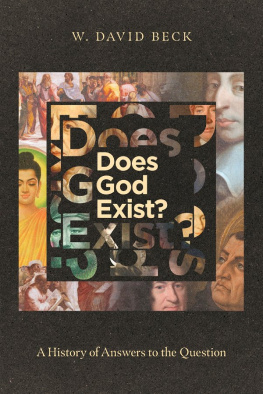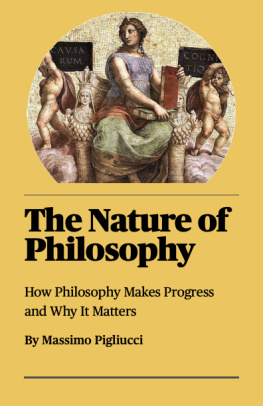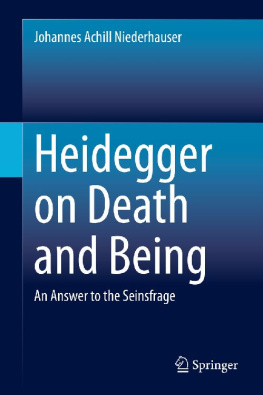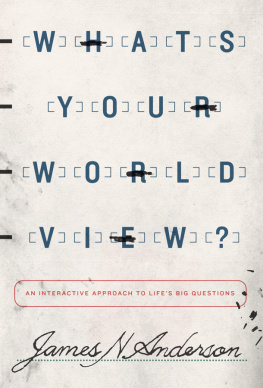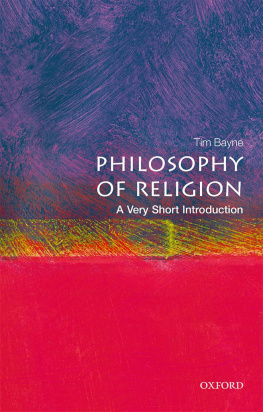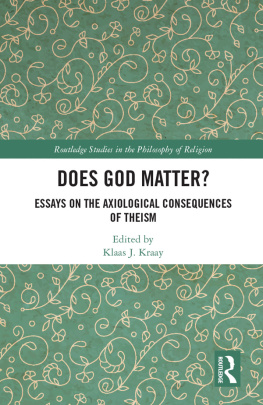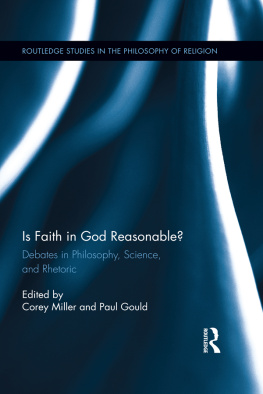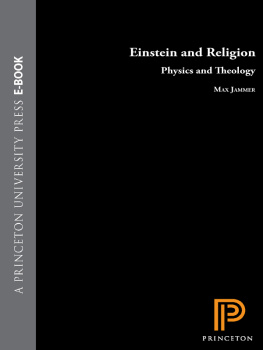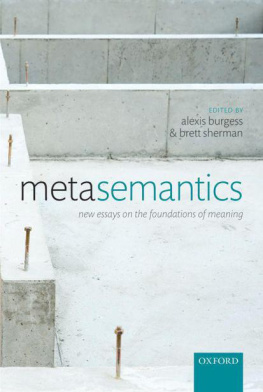The Puzzle of Existence
This groundbreaking volume investigates the most fundamental question of all: Why is there something rather than nothing? The question is explored from diverse and radical perspectives: religious, naturalistic, platonistic, and skeptical. Does science answer the question? Or does theology? Does everything need an explanation? Or can there be brute, inexplicable facts? Could there have been nothing whatsoever? Or is there any being that could not have failed to exist? Is the question meaningful after all? The volume advances cutting-edge debates in metaphysics, philosophy of cosmology, and philosophy of religion and will intrigue and challenge readers interested in any of these subjects.
Tyron Goldschmidt is a lecturer in philosophy at the University of Wisconsin at Stevens Point, USA.
Routledge Studies in Metaphysics
1 The Semantics and Metaphysics of Natural Kinds
Edited by Helen Beebee and Nigel Sabbarton-Leary
2 The Metaphysics of Powers
Their Grounding and Their Manifestations
Edited by Anna Marmodoro
3 Freedom of the Will
A Conditional Analysis
Ferenc Huoranski
4 The Future of the Philosophy of Time
Edited by Adrian Bardon
5 Properties, Powers and Structures
Issues in the Metaphysics of Realism
Edited by Alexander Bird, Brian Ellis, and Howard Sankey
6 The Puzzle of Existence
Why Is There Something Rather Than Nothing?
Edited by Tyron Goldschmidt
The Puzzle of Existence
Why Is There Something Rather Than Nothing?
Edited by Tyron Goldschmidt
First published 2013
by Routledge
711 Third Avenue, New York, NY 10017
Simultaneously published in the UK
by Routledge
2 Park Square, Milton Park, Abingdon, Oxon OX14 4RN
Routledge is an imprint of the Taylor & Francis Group, an informa business
2013 Taylor & Francis
The right of the editor to be identified as the author of the editorial material, and of the authors for their individual chapters, has been asserted in accordance with sections 77 and 78 of the Copyright, Designs and Patents Act 1988.
All rights reserved. No part of this book may be reprinted or reproduced or utilized in any form or by any electronic, mechanical, or other means, now known or hereafter invented, including photocopying and recording, or in any information storage or retrieval system, without permission in writing from the publishers.
Trademark Notice: Product or corporate names may be trademarks or registered trademarks, and are used only for identification and explanation without intent to infringe.
Library of Congress Cataloging-in-Publication Data
The puzzle of existence: why is there something rather than nothing? / edited by Tyron Goldschmidt. 1 [edition].
pages cm. (Routledge studies in metaphysics; 6)
Includes bibliographical references and index.
1. Ontology. I. Goldschmidt, Tyron, 1982editor of compilation.
BD311.P89 2013
111dc23
2012049727
ISBN: 978-0-415-62465-7 (hbk)
ISBN: 978-0-203-10432-3 (ebk)
Typeset in Sabon
by Apex CoVantage, LLC
For Yael and Hannah Tehillah
Contents
| TYRON GOLDSCHMIDT |
| TIMOTHY O'CONNOR |
| GRAHAM OPPY |
| SHIEVA KLEINSCHMIDT |
| JACOB ROSS |
| CHRISTOPHER HUGHES |
| EARL CONEE |
| JOHN LESLIE |
| DAVID EFIRD AND TOM STONEHAM |
| JOHN HEIL |
| E.J. LOWE |
| GONZALO RODRIGUEZ-PEREYRA |
| MATTHEW KOTZEN |
| MARC LANGE |
| STEPHEN MAITZEN |
| KRIS MCDANIEL |
Understanding the Question
Tyron Goldschmidt
Why is there something rather than nothing? The question encapsulates the puzzle of existence. This chapter introduces the puzzle and the rest of the volume. After some terminological preliminaries in Section 1, Section 2 explains the puzzle by identifying and distinguishing more particular questions. Section 3 surveys the main answers that have been put forward and outlines the chapters in the rest of the volume, identifying their bearing on the different questions and on each other. There are a couple of original and pertinent points too.
1 Preliminaries
A few philosophical notions are helpful in formulating the questions and are at work in the chapters that follow. Particularly prevalent are the pairs of notions of concreteness and abstractness , and contingency and necessity , and then, the trickiest of all, the notion of possible worlds .
Concreteness and Abstractness
The distinction between concrete and abstract beings has been drawn in various ways but usually by using spatiotemporal and causal criteria. On the spatiotemporal criterion, concrete beings are spatiotemporal: concrete beings are in space or time, whereas abstract beings are spaceless and timeless. On the causal criterion, concrete beings are causal in nature: concrete beings have causal powers, whereas abstract beings are powerless. There are then the tasks of providing more precise criteria for spatiotemporality and causal powers in turn. In any case, concrete beings are typically thicker and heavier, abstract beings thinner and wispier, and the categories mutually exclusive and exhaustive.
The spatiotemporal and causal criteria have similar extensions: planets and plants count as concrete on either, while numbers and propositions, as conceived by platonists, count as abstract on either. But they might not overlap entirely. On the one hand, there are candidates for spatiotemporal beings that are not causal: for example, spatiotemporal points. On the other hand, there are candidates for causal beings that are not spatiotemporal: for example, God. But these are controversial exceptions, both as to whether they exist and as to whether they are exceptions: some ascribe powers to spatiotemporal points, and spatiotemporality (or at least temporality) to God.
I take the criteria to be stipulative definitions; concrete and abstract are terms of art. When philosophers disagree about them they disagree only about how to use the terms, and not about the nature of things. Thus, we do not have to decide which is correct; we have only to decide how to use our terms.
Contingency and Necessity
Contingent beings are things that both could exist and also could fail to exist, whereas necessary beings are things that could not fail to exist. Necessary beings have a stronger grip on reality than do contingent beings. Planets and plants are contingent beings. If the boundary conditions of the universe or natural laws were ever so slightly different, no planets would have formed, and even with the boundary conditions and natural laws there are, if the planet were ever so slightly nearer to or further from the sun, plants would not have evolved.
God, as traditionally conceived, would be a necessary being. God would not just happen to exist; if God exists at all, then God is the sort of being that could not have failed to exist. Other candidates for necessary beings are numbers and propositions (once again, as conceived by platonists), though these are controversial candidates, both as to their necessity and as to their very existence, which is at least as controversial as the existence of God.
The examples show that the categories of concrete and abstract, on the one hand, and contingent and necessary, on the other, could cut across each other. While most readily available examples of concrete beings are also contingent (thus plants and planets), there could be exceptions: for example, God would be concrete but necessary. Then there are abstract beings that are necessary (thus numbers and propositions), but there are also contingent abstract beings: for example, sets are abstract beings, but sets whose members are contingentsuch as {Aristotle, the Eiffel Tower}would themselves be contingent.

